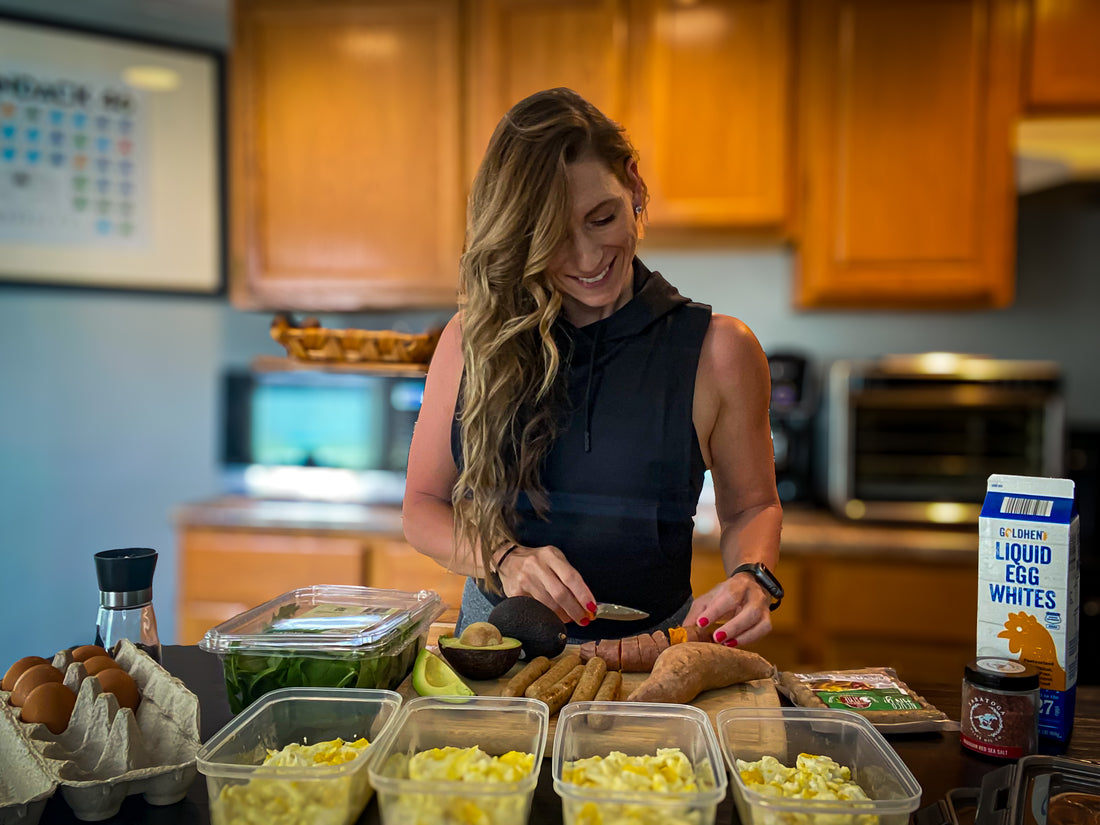Hey there, fitness enthusiasts! If you’re on a mission to build muscle, you've probably heard the age-old advice: "Eat more to gain more." But let me tell you, as a personal trainer and nutrition coach, it's not just about how much you eat—what you eat is far more crucial. Let's dig into why quality trumps quantity when it comes to fueling your muscle-building journey.
The Big Picture: Quality Over Quantity
It’s easy to fall into the trap of thinking that loading up on calories will automatically translate to muscle gains. Sure, you need calories to grow, but the source of those calories is what really makes the difference. Nutrient-dense foods provide the essential building blocks your muscles need to repair and grow after those tough workouts. On the flip side, empty (junk) calories can lead to unwanted fat gain, nutritional gaps, and poor energy and recovery.
Foods to Steer Clear Of
Let’s start with what to avoid. These culprits can seriously derail your progress:
1. Alcohol
Alcohol is a muscle-building enemy for several reasons. It disrupts protein synthesis, which is the process your body uses to repair and build muscle tissue. Plus, alcohol dehydrates you, affecting muscle function and recovery. Not to mention, it messes with your sleep and nutrient absorption—both critical for muscle growth.
2. Deep-Fried Foods
Deep-fried foods are loaded with unhealthy fats and empty calories. They can cause inflammation and oxidative stress, which can slow down your recovery and overall progress. Plus, these foods are low in the nutrients your body needs to build muscle effectively.
3. Added Sugars
Added sugars, found in sodas, candy, pastries, and many processed foods, provide empty calories with little to no nutritional benefit. They can spike your insulin levels, leading to fat gain and energy crashes. Over time, high sugar intake can contribute to chronic health issues that will hamper your fitness goals.
4. Processed Foods
Processed foods often contain unhealthy fats, added sugars, and are stripped of their natural nutrients. These foods can lead to weight gain, inflammation, and poor muscle recovery. Some examples include packaged snacks, ready-to-eat meals, and processed meats.
The Muscle-Building All-Stars: Nutrient-Dense Foods
Now, let’s talk about what you should be eating. These nutrient-dense foods will fuel your muscle-building goals and keep your body in peak condition:
1. Animal and Lean Proteins
Protein is your muscle’s best friend. High-quality sources like grass fed beef, pasture raised chicken, turkey, wild caught fish, pasture raised eggs, and plant-based proteins such as beans, lentils, and tofu are essential. They provide the amino acids necessary for muscle repair and growth.
2. Complex Carbohydrates
Carbs are your primary energy source, especially for those intense workouts. Go for complex carbs like whole grains, quinoa, brown rice, sweet potatoes, and oats. They provide long-lasting energy and are rich in fiber, vitamins, and minerals.
3. Healthy Fats
Healthy fats are crucial for hormone production, including testosterone, which is key for muscle growth. Incorporate avocados, nuts, seeds, olives and olive oil into your diet. Fatty fish like salmon and mackerel are fantastic too, offering omega-3 fatty acids that reduce inflammation and support recovery.
4. Fruits and Vegetables
These are packed with micronutrients: vitamins, minerals, and antioxidants that support overall health and recovery. They help reduce inflammation and oxidative stress, which is vital for muscle repair. Aim for a colorful variety to ensure a broad range of nutrients.
5. Dairy or Dairy Alternatives
Dairy products like Greek yogurt, cottage cheese, and milk are rich in protein and calcium, supporting muscle function and bone health. If you’re lactose intolerant or vegan, you can opt for fortified plant-based alternatives to get similar benefits. Steer clear of low-fat varieties as these are altered and usually have added and/or removed ingredients in them.
Wrapping It Up
Building muscle isn't just about eating more—it’s about eating smart. Prioritize nutrient-dense foods that provide the essential vitamins, minerals, and macronutrients your body needs. Avoid foods like alcohol, added sugars, and processed and deep-fried items that can derail your progress and harm your health.
Remember, quality always trumps quantity. By making thoughtful food choices, you can fuel your body efficiently and achieve your muscle-building goals more effectively. Keep pushing, stay focused, and eat right—your muscles will thank you!

